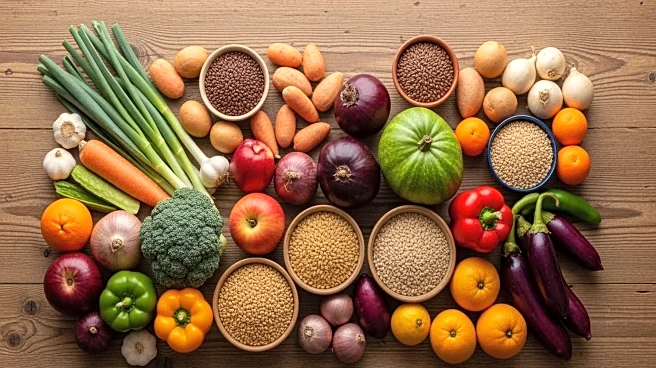What's Happening?
Francesco Sottile, a member of the Slow Food Board of Directors, emphasized the need for Europe to adopt agricultural policies that promote peace and sustainability. Speaking at the UN Assembly of Peoples
in Perugia, Italy, Sottile highlighted the importance of viewing agriculture as a cultural practice that fosters trust and community. He called for a shift in European policies to prioritize ecological transitions, local production, and food sovereignty, moving away from reliance on unstable global markets. Sottile argued that agriculture should be a tool for peace, urging Europe to invest in agricultural cooperation with fragile countries and support rural communities.
Why It's Important?
The call for peace-oriented agricultural policies in Europe is significant as it addresses the intertwined issues of hunger and conflict. By prioritizing sustainable agriculture, Europe can contribute to global peace efforts and reduce the use of food as a weapon in war zones. This approach also supports the preservation of biodiversity and cultural heritage, ensuring that food production does not exploit people or the environment. The emphasis on local production and food sovereignty can enhance food security and dignity for workers, while combating the climate crisis.
What's Next?
Europe may consider revising its agricultural policies to align with the principles of peace and sustainability advocated by Slow Food. This could involve increased funding for ecological transitions and support for local food systems. Additionally, Europe might engage in international cooperation to promote these values globally, fostering peace through agricultural practices. The potential shift in policy could lead to broader discussions on the role of agriculture in peace-building and environmental justice.
Beyond the Headlines
The advocacy for peace through agriculture highlights the ethical dimensions of food production, emphasizing the need for policies that respect human rights and environmental integrity. It also underscores the cultural significance of agriculture as a means of fostering community and dialogue, suggesting that food can be a powerful tool for unity and reconciliation.









